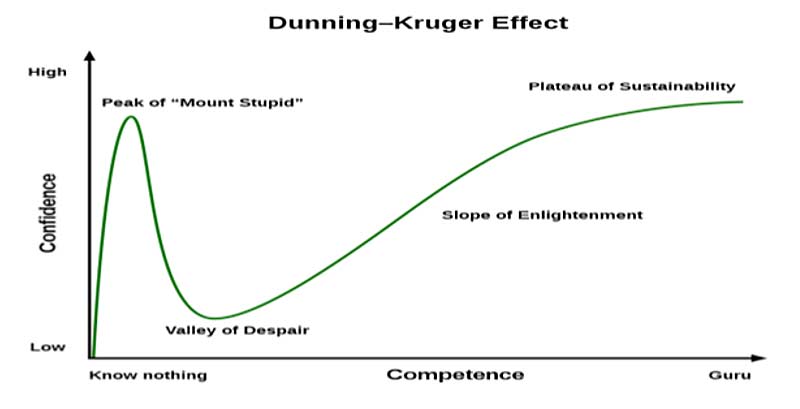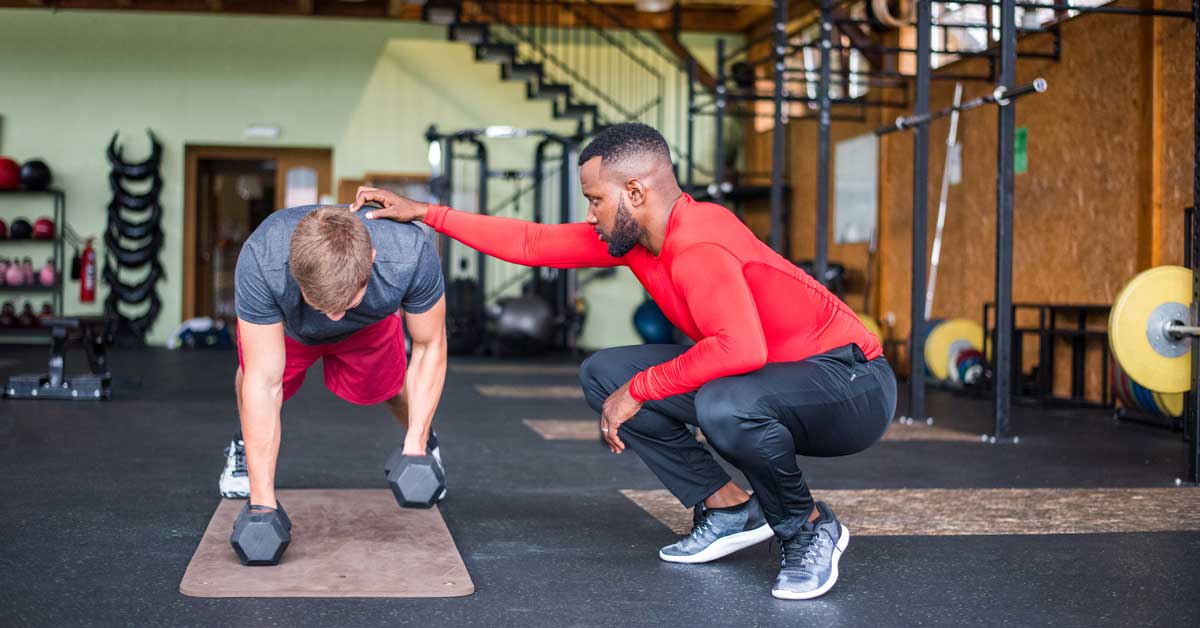Starting a career as a coach in this field can be exciting and rewarding; it can also, at times, be overwhelming. There will be countless pieces of novel information, assigned tasks, names and faces to learn, and hours spent on your feet that are all part of the process of becoming and continuing to be a strength and conditioning coach. At the end of the day, however, if you are passionate about human health and performance and creating meaningful relationships with others, it will all be worth it.
Plus, we get to wear athletic gear, train ourselves, and not sit behind a desk for a career—pretty cool if you ask me. The first few years as a coach are full of decisions that can lead you down one coaching route or another, and that can make or break you and your experience as a coach in this field. In no particular order, I have listed eleven tips that I either wish I knew before starting my journey or that I have learned through my various experiences over the past two and a half years as an intern and coach.
The experiences I have had in this field have influenced my personal and professional growth, which I attribute to the people I have worked with and for. My career as a Strength and Conditioning coach started with three consecutive internships:
- One with my high school S&C coach in Virginia Beach.
- Another with Cressey Sports Performance in Massachusetts.
- Lastly with Elon University Sports Performance.
Following this string of internships, I went on to pursue a Master’s degree in the 2021-2022 school year at Merrimack College while also serving as a Graduate Fellow Strength and Conditioning coach. In the summer of 2022 I served as the S&C coach for the Brewster Whitecaps in the Cape Cod Collegiate Baseball League. During those two and a half years, I worked with athletes from a wide variety of backgrounds, including high school, collegiate, and professional baseball, softball, soccer, football, track and field, ice hockey, and military/tactical athletes.
To say I learned a lot from these experiences would be an understatement, but I surely left some growth on the table. At times, I was close-minded, stubborn, arrogant, and lacked communication skills—if I had known or appreciated some of the tips I provide below, I am confident I would have squeezed every ounce out of each of these experiences.
Tip #1: Do Your Research
I don’t mean join a research team and work in a lab (although that too can be a valuable experience). Instead, this section is focused on the idea of knowing everything about a place before you decide to apply. Whether it is an internship, a graduate assistantship, or your first job, educating yourself on the culture, the people, the duties and responsibilities expected of you, past interns or employees and why they may have left, benefits the position is or is not offering, location and housing, and much more are vital to ensuring you and the potential employment site are a good fit.
Unfortunately—but also fortunately, which I will discuss in another tip—it is going to be hard to find the perfect spot, so prioritizing what you need from the opportunity should be at the forefront of your decision making process when identifying places to apply.
Tip #2 – The Application and the Interview
For interns, do not worry if your professional work history is not what you would consider competitive. It is likely your first or second experience as a coach, which places looking for interns should understand and perhaps be excited about—you provide them with the opportunity to teach and mentor others, which is really what we are doing as coaches at the end of the day. Before sending in your application, reread it, have someone else go through it, then reread it two more times yourself.
I am not kidding.
Showing an employer right off the bat whether you can follow instructions exactly as they are provided to you for applications/submissions can move you to the interview stage or get you dropped from consideration immediately.
For interns, do not worry if your professional work history is not what you would consider competitive. Share on XIf given the opportunity to do a phone, in-person, or Zoom interview, be on time and dress for the job you want. Be yourself. Answer questions honestly, emphasize your strengths, and be a good person. Ask questions. Both before and during the interview. If you know someone who has applied or worked there before, ask them what to expect so you can prepare.
At the end of the interview, when the interviewer asks if you have any questions, have two to three prepared about the position and perhaps develop another based on something that was discussed during the interview. Not asking questions can make it seem like you know everything already about the experience, and an answer you receive may give you more information that you need to make a decision. If you are offered positions at multiple places, do what is best for you in regards to what factors, benefits, and details you are prioritizing.
Tip #3 – People Come First
To steal a quote from Teddy Roosevelt, “They don’t care how much you know until they know how much you care.” The first task ever given to me as an intern was go in the gym and meet as many people as I could and learn everyone’s name. That same task ended up being the first one at every place I went to. It is impossible to truly connect with an athlete or even cue a lift without first knowing their name. An athlete’s lack of ability to be coached is not always because they do not want to listen—instead, maybe it is because they do not trust or even know the person giving the instruction. I was certainly guilty of this when trying to coach football athletes at Merrimack College on my first day, without ever having a conversation with some of the guys I was coaching.
It is impossible to truly connect with an athlete or even cue a lift without first knowing their name. Share on XBeing a good person and being someone your coworkers and athletes want to be around for an hour, a week, a month, a year, and so on, is incredibly important. Read How to Win Friends and Influence People by Dale Carnegie. People first, always.
Tip #4 – Listen, Watch, Learn
A little over a year ago, at the end of my first internship, I sat in on a presentation given by Coach Dan Sanzo, who at the time was the Director of Performance at Northeastern University. One thing he said that stuck out to me was that “coaching and training models are never right, some are just less wrong than others.”
I don’t think I quite understood exactly what he meant until I went to my next internship. I went in thinking I knew what they were going to teach me and that I was already a good strength coach. Hello Dunning-Krueger Effect, I had reached the peak of “Mount Stupid.”

Listen to everything those around you are trying to teach you. There is so much to learn but in order to do so, we must put our egos aside and allow others to teach us. Watch. A lot goes on in the weight room and one can learn a lot just from watching an athlete move, watching another coach cue a movement from across the room, or seeing how the flow of a weight room impacts the training experience of the athletes. Mastery is impossible. There is always going to be something else to learn whether you believe it or not. As a coach we are servant leaders. The more we learn, the more we can teach, the more we can serve.
Mastery is impossible. There is always going to be something else to learn whether you believe it or not. Share on XLastly, as you are working as an intern, a GA, or a full-time coach, constantly analyze what you do and do not like about where you are. I do not mean go searching for things you dislike about a place, but being aware of these details will help inform your future career decisions. There is something to learn from everything: good and bad, success and failure. Keep seeking out the good things in future jobs and avoid going to places that may resemble the bad qualities of a workplace that you experienced elsewhere.
Tip #5 – Constantly Provide Value
Value is a broad word that means different things to different people. Generally, however, it means being the best intern, coach, and coworker you can possibly be. Carry yourself with integrity, do what you say you will do. Be efficient. Show up early, complete assigned tasks ahead of the completion date, and do things that you know need to be done before being asked to do them. Be a good person. It is hard to provide more value to a staff and a culture than when you can put others in a good mood just based on your presence.
You should never be doing nothing. Constantly find things to do, always be aware of your body language, and remember you are always being evaluated. Lastly, while this should not be the sole reason you apply somewhere, many places will hire from their internship or graduate assistantship pool. Do a really good job and you are more likely to end the volunteer job with a part- or full-time position.
Constantly find things to do, always be aware of your body language, and remember you are always being evaluated. Share on XTip #6 – Always Be Networking
You never know who you will come across in your early years as a coach that you may end up working with or be hired by down the road. Every person you have worked with, or that has ever worked for a place you have worked for, is someone in your network. Make an effort to reach out and introduce yourself to as many of them as possible. Try to form meaningful relationships with them as it will strengthen your network and likely allow you to be introduced to their broader network.
Also, make an effort to go to surrounding facilities and schools. Taking an hour or two to go observe other coaches can lead to so many great things. Maybe you learn new programming ideas or cues from watching and listening to another coach, maybe you spark up a conversation and find out they will be hiring in a few months, or maybe you just form a great professional relationship with the staff which may lead to opportunities for collaboration in the future.
Lastly, do not underestimate the power of social media. Follow, repost, DM, and engage with others in the community. Give credit where it is due. Connect with others you otherwise would not be able to due to geographic limitations. Networking is your best friend.
Tip #7 – Branch Out
Going along with the networking, do not be afraid to branch out beyond the S&C community. Making friends and connections with people from other industries can broaden your own skill set, provide you with different points of view to a problem, and expand your network.
Making friends and connections with people from other industries can broaden your own skill set. Share on XEngage with graphic designers, accountants, engineers, and so on. One day you may want to start your own coaching business, you are going to need to know how to manage money, and engineers know a thing or two about physics and biomechanics which govern the body.
Tip #8 – Communication
Working at a university, in the professional sporting realm, or even in a private training facility, there will be multiple departments of professionals working cooperatively. S&C coaches do not just report to S&C coaches. A performance team consists of sport coaches, S&C coaches, nutritionists, physical therapists, athletic therapists, administration, and athletes themselves.
Ensuring all of these departments are on the same page when it comes to the care and training of the athlete is of the upmost importance. If an athletic department does not have a good system of communication, then the best job possible cannot be achieved. You cannot control if someone else fails to communicate, but you can control:
- That you communicate clearly and concisely.
- How you respond to situations in which information was not clearly communicated to you.
Over-communicate, but keep things simple. Provide enough detail, but do not make things hard to comprehend. Ask more questions than you may think are necessary. Leave no doubt.
Tip #9 – Find Outlets
Nobody wants to talk about it, but burnout is a real thing that can make or break a young coach’s career. It is not uncommon to be working 10-12+ hour days throughout the week as well as potentially having weekend training sessions (there are schools and facilities that are much better about scheduling staff, so make that a part of your research when applying if you wish to prioritize your free time).
When you do have time off, get away from the gym. Your identity is more than being a coach. Find things or people that you enjoy doing and being around that have nothing to do with the position you are in. I love being a coach, but going to the driving range between sessions or watching a movie instead of reading an S&C book are simple things I do to appreciate time away from the field.
When you do have time off, get away from the gym. Your identity is more than being a coach. Share on XAlong with finding outlets, set boundaries. Make sure the people you work with, including athletes, know exactly when you are and are not reachable. I had a coworker do this right away at one of my experiences, which I thought was odd—but then I began to envy that decision as time went on.
Tip #10 – Time Management
There are 168 hours in a week. Manage and plan that time out ahead of time. When you start gaining more responsibilities in the gym on top of school work, free time, your own training, sleeping, etc., things like Google Calendar or a planner are valuable tools to keep yourself on track.
Some people say procrastination is the key to creativity, while others say it is better to knock things out immediately in order to make changes or to have free time later. However you manage your time and responsibilities, just make sure you are not holding someone else back or forcing them to carry more of the load.
Lastly, earn the right to say no. This may be contradictory to the point I made above, but as a young coach, every opportunity thrown at you is a learning experience. If your boss asks you to do something, do it. The best ability is availability. As you offer more of your time and support, you will gain trust, reliability, and credibility from those you work with and for. Eventually, as you earn the respect of those around you, it becomes much easier to dedicate your time to where you feel it is most valued, and when you do decide to say no to things, that decision will be respected.
As you earn the respect of those around you, it becomes much easier to dedicate your time to where you feel it is most valued. Share on XTip #11 – Overcoming Imposter Syndrome
It does not matter where you are in your coaching career or where you feel you lie on the Dunning-Kruger line, imposter syndrome will likely find you at some point. It is the moment when you tell yourself you are not ready for the responsibilities bestowed upon you.
For me, and I am sure for most coaches, it was when I became a Graduate Fellow and was given my own teams to program for and coach. Fear begins to creep in that you do not know enough about programming, or you ask yourself if you are truly ready to lead a group of athletes that are depending on you to prepare them for sport.
The best way to overcome this mindset is simply to jump in, but also to have a purpose for everything you say, do, or write. Have a why. I remember Coach Nick DiMarco at Elon telling our intern team to have a why for everything you program, and then be able to back that why up again and again. Not only was this great advice for sound programming, but it became great advice when overcoming imposter syndrome. If you know the purpose of the work you have prescribed to a team, then you should be so confident in that work that you can own it and lead a team through it.
Have a why for everything you program, and then be able to back that why up again and again. Share on XTrust that what you already know about programming, coaching, and so on is enough to do a good job. Stay committed to the learning process. When you make a mistake, analyze what went wrong, ask questions, gather feedback, learn how to prevent the mistake from occurring again, and then accept the fact that mistakes will serve as moments for growth throughout your career.
Putting It All Together
I am by no means a perfect person or professional. I have two and a half years of experience in this field. I have developed as both a person and a professional substantially in that time, which is due to the mistakes I have made and learned from as well as the mentors I have had who invested their time, patience, and knowledge into my growth.
There are eleven tips I focused on, but plenty more could have been included. Part of my passion for this field comes from the constant chances we are given as coaches to learn and to teach. I hope you, as a fellow young strength coach, have learned from some of the tips I have provided. Feel free to reach out to me with any questions and good luck with your upcoming or current positions!
Since you’re here…
…we have a small favor to ask. More people are reading SimpliFaster than ever, and each week we bring you compelling content from coaches, sport scientists, and physiotherapists who are devoted to building better athletes. Please take a moment to share the articles on social media, engage the authors with questions and comments below, and link to articles when appropriate if you have a blog or participate on forums of related topics. — SF




